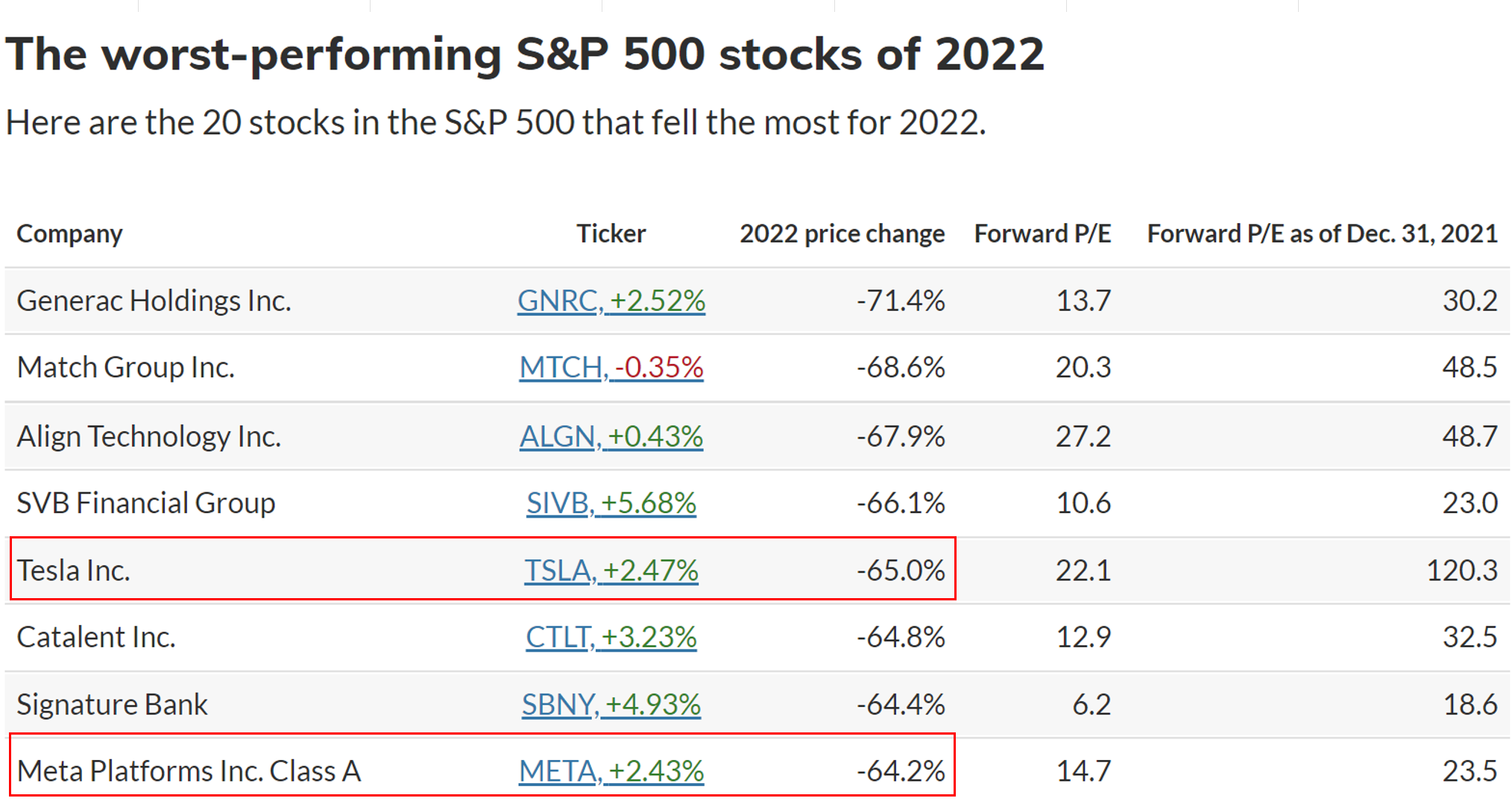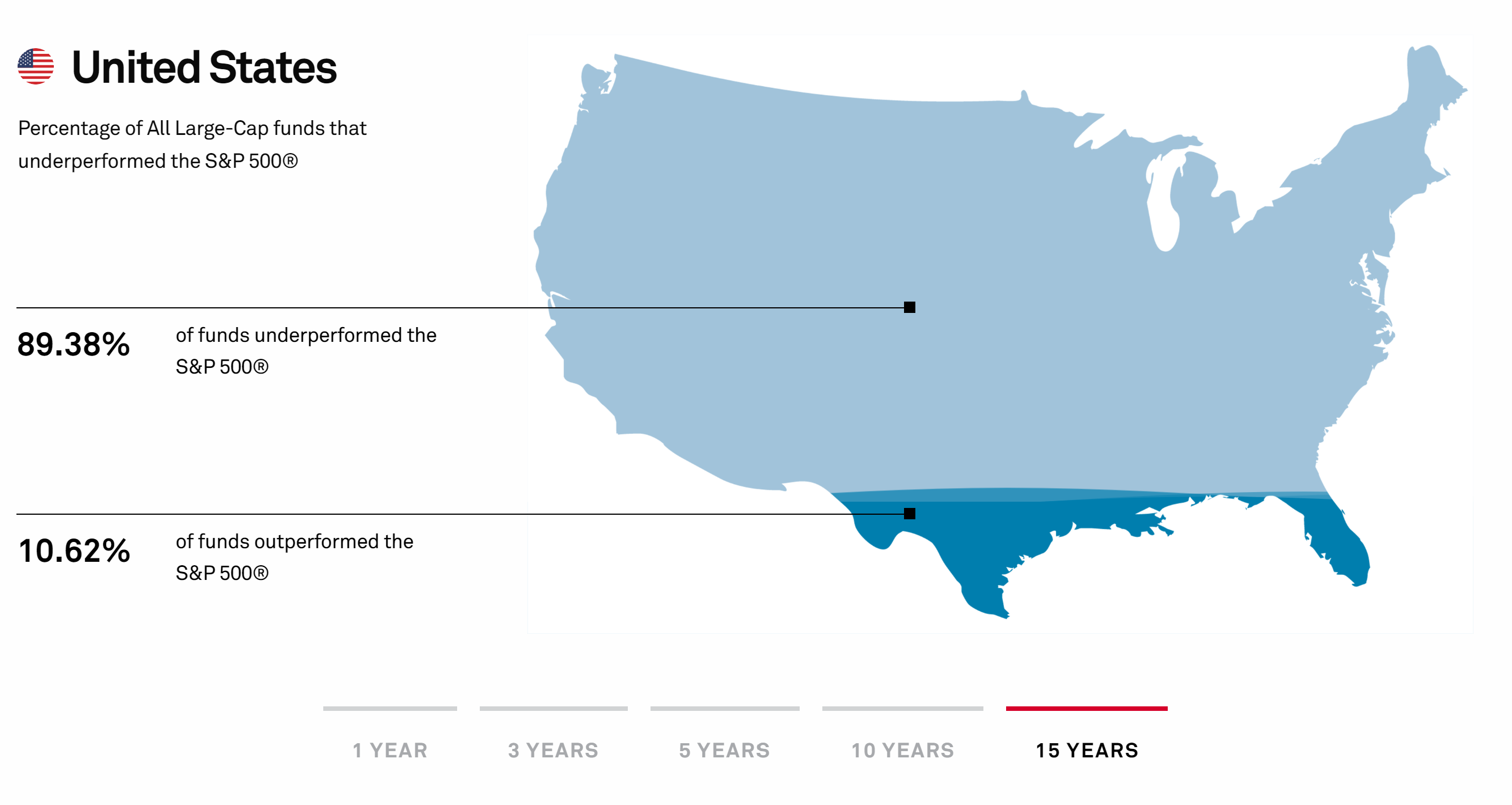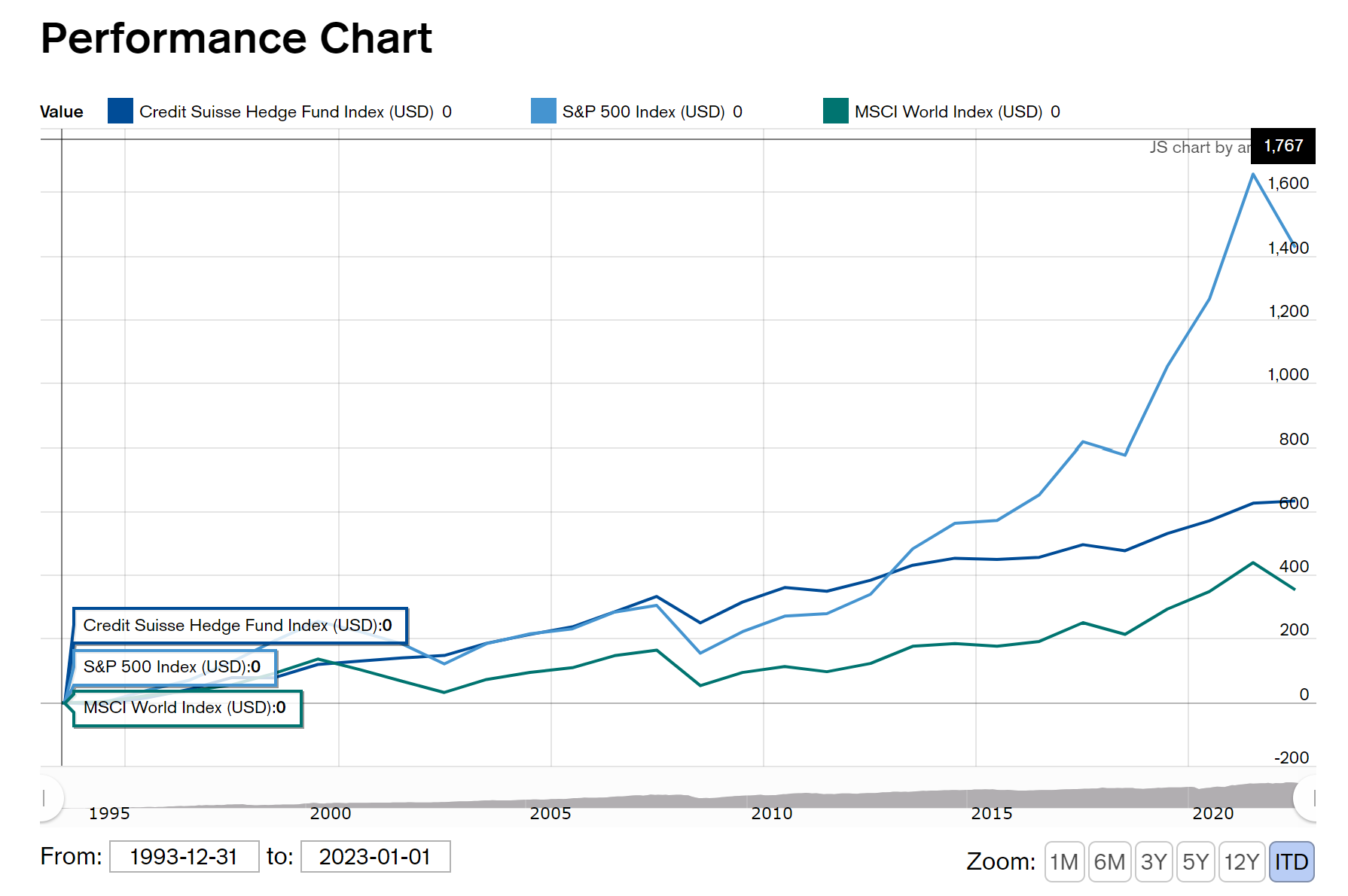Lots of good answers already. However, since this question was asked, a few things happened that make it worth to add yet another answer in my opinion.
The stock market declined in 2022:
- S&P: -16.72%
- Apple: -20.81%
- Google: 32-32.57%
- Amazon:-44.78%
- Block Inc (Square): - 49.19%
- Netflix: -51.1%
- Meta (Facebook): -64.20%
- Tesla: -65%
These are the worst performers in the S&P500 in 2022:
Empirically, it seems to me that unicorns, planet 9 and primordial black holes and the folks consistently beating the overall stock market have something in common. People (with unicorns it's mostly kids, with alpha less so, planets and black holes seem to fascinate adults and kids alike) tend to always talk about them, but no one has actually ever seen one for real.
Of course, there is Rentec, but generally, that also only applies to their Medallion Fund as their open funds frequently take a beating, and Warren Buffett, George Soros and the like, but overall, the performance of active investment managers is very poor.
You may think that these investors are not the best and hedge funds are obviously beating the S&P500. Well, Credit Suisse has plenty of data on that, and their broadest measure, the Credit Suisse Hedge Fund Index looks like this:
In the words of Warren Buffett, "I have talked to huge pension funds, and I have taken them through the math, and when I leave, they go out and hire a bunch of consultants and pay them a lot of money. Just unbelievable."
Speaking of which, Warren Buffett frequently dwarfed the S&P500 returns. However, nowadays, the supply of capital chasing performance has dramatically expanded. Buffett no longer provides skyrocketing returns according to the usual first page of the annual letter to Berkshire shareholders comparing the annual performance of Berkshire against that of the S&P 500.
Of course, in the long run you may still win and this may just be a temporary hiccup for these companies. Reality is that many people do not buy and hold for 30 years. Some may get some money as teenagers, that they want to use for university in two or 3 years. Others save for a house or apartment.
In any case, buy and hold only works properly with indices. This Washington Post article in 1998 writes that
Xerox shares topped the "Nifty Fifty" list of hot stocks during Wall Street's go-go years of the 1960s.
and the company
... has climbed 150 percent over the past two years.
The figure below shows the stock price of Xerox:
If you had all your savings in Xerox like companies in 1998, and wanted to soon use them to buy a house with your newlywed, good luck! Fortunately you probably ended up selling before the market recovers which would be the wrong thing to do with the S&P. In the case of Xerox, it would have saved you from the worst. Either way, you likely would have never again been able to afford a house, and got divorced after a year like this...




